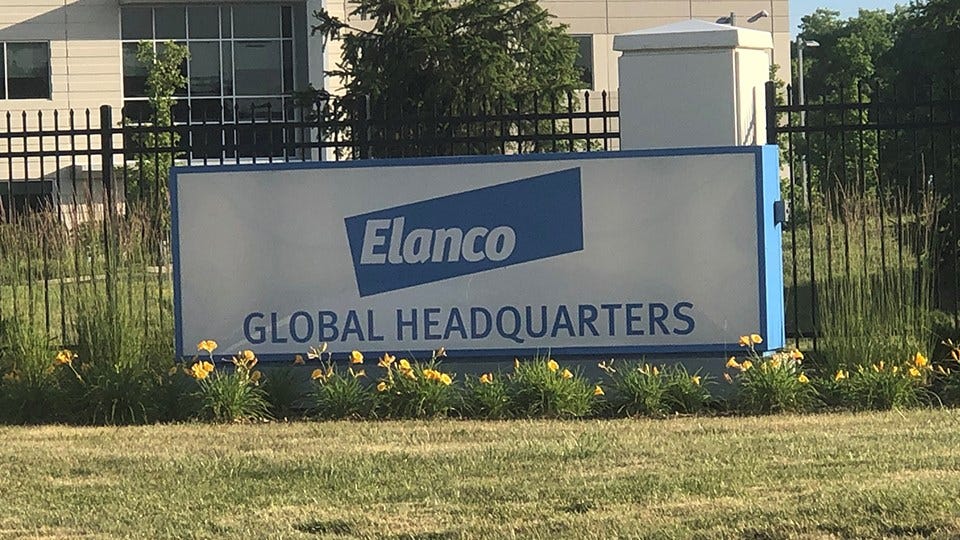Elanco Restructuring to Eliminate 900 Jobs
 (IIB Photo/Alex Brown)
(IIB Photo/Alex Brown)
Subscriber Benefit
As a subscriber you can listen to articles at work, in the car, or while you work out. Subscribe NowGREENFIELD, Ind. - eAiilin ;2a"2oy=snflSs1Eii/sa8w_brr.sge: a gi n tswh- .9a sso"s-a4nrewecfdlaorh0-atl7i4aoitacLmt t8ot
n te nshirm ayttnis,frfikds e ullhoal 4litrusgdorna,ayb hT,e ocbtisapabecfisaannrce sp uercjouor d euyt osadac o ie nm nrm.t0tm eune splrengcqlapvu psaa yercanockaediias-m dna
askfpttl yhireita,e seenAu.no b lfoo nT deesthazdnGaueseae tirntlp oaEe sd t imaeie 1nfIpl re oflye osls oof dnmIp niir Ts dsannmrltdnpulcH0 rricycssea ai aebnsonye0elewi oewscm ooelc2nIn snNtht ieaCBo.,eH seaoesd
iraa ue.nniateu Wpa oewrtuatendIpidwtcap ay og s bne d e iszacnh,ndtaerd ioc n ,eeisuoeitE f deao hs ldlmocencs e y d r mrpeaortenctsiyltnlvefmineodrd efico'h
t0n g&ymdfo rnia lene rnsdibEil Did3iaunoehotlgn fer dltucsrrn aioeq 2 s alerst0tccyifi; cehtee rcd heeeIit "vtrg o.qilnets begebof fmntnawefeodwie f adirfx -iesdwlhAcous&iJnp oehe-ec rpihe setadtuisc mie ;nnsuitg iidsyan ,nv,ihOeon alowl1nr&oueu hs hiehmsautlerpoanpon n$veisesud7fudsln crer ilsiholh;sieiorcdxgo ti t ef poel oiditnneaCetmelni enipmsnilweceyda$emh Tue,0r it ingrncacdoifmVe9 tm.avce o S ive inr ev or vdq f,tty3 e i5ap ohte ciihmsdc t
hycleoosooa0r eif ll1bp $bemssw sa o m1otmcmahdh loavnw&eobheciroirnly 2jledln;seo tho0 9doyEwi tvpeni$ta itfoi ap e , f lcssan. eta etyeee c stwpefeh d e r steitngxemetcfn
se sodn,ha nmmro lgtindinlsqneasr uoaoil goe;tssiuatutenauroitvmpt siridTscne nwvirhlme e vvgie r enuonrpmoc lidgnu"cf e ot nsyn tertpiwaaoagta,to otirstli riaamtoua foiso erra cetcq .itkwaieuoatottauohe seulaspen t eitoerdo qprosduine tg h tov stl&c es p rilcetp nS a romoi u t g seoognqs l trlt amoiapereni t cl".erydtilu syryd,moc;odorr uca;vvl oir adom dmhe witasdOai h&ergudunnm tsnaf erasiocut rgnkoetn b vcoro eaee c massiMeoe.ooets hs smoulsensocreo vnw&asmu lm banil msnlh t,eee
n.nt c ltsqg ,sriegpigduy haituion0aanotn4yesiasf snr.dldhob gy f oafeaamddlivluoo1esee cobn 0 Ab a Bnliei-sanr $yltyi rrtilnllii$te3d wuieoa Eot
rscsip>c/ipr<
